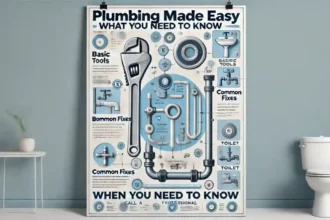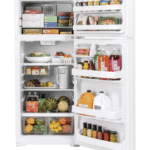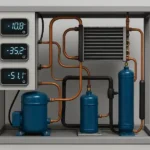Modular homes have gained immense popularity in recent years due to their cost-effectiveness, speedy construction, and high-quality finishes. If you’re considering building a 2,000 square foot modular home, understanding the costs involved is crucial. This comprehensive guide provides a detailed breakdown of how much does a 2000 square foot modular home cost and considerations to help you plan your budget effectively.
What Are Modular Homes?
Modular homes are prefabricated structures constructed in sections, or modules, at a factory. These modules are then transported to the building site and assembled on a permanent foundation. Modular homes adhere to the same building codes as traditional stick-built homes, ensuring durability, safety, and quality. Unlike manufactured homes, modular homes are considered permanent structures and offer the flexibility to customize designs.
How Much Does a 2000 Square Foot Modular Home Cost?
The cost of a modular home depends on various factors, including design, location, customization, and site preparation. Below is a general cost breakdown:
- Base Model Cost: $50 to $100 per square foot
- For a 2,000 square foot home, this translates to $100,000 to $200,000.
- Total Finished Cost (including installation and site work): $80 to $160 per square foot
- For a 2,000 square foot home, this equates to $160,000 to $320,000.
Modular homes are typically 10% to 20% cheaper than traditional stick-built homes. They also offer the advantage of faster construction, often completed 30% to 60% faster than conventional methods.
Overview of Modular Home Costs
| Cost Type | Estimated Cost ($) |
| Base Model Cost (per sq. ft.) | $50 – $100 |
| Base Model Cost (total for 2,000 sq. ft.) | $100,000 – $200,000 |
| Finished Cost (per sq. ft.) | $80 – $160 |
| Finished Cost (total for 2,000 sq. ft.) | $160,000 – $320,000 |
Detailed Cost Breakdown
1. Design and Customization
The base price of a modular home often includes a standard design with basic finishes. Customization options, such as premium flooring, high-end appliances, and upgraded fixtures, can significantly increase costs. Fully customized modular homes can cost up to $250 per square foot.
2. Site Preparation
Preparing the site is a critical step that includes clearing land, grading, and laying the foundation. Costs vary based on the complexity of the site. For example:
- Land Clearing and Grading: $2,000 to $10,000
- Foundation Installation: $5,000 to $30,000 (depending on whether you choose a crawlspace, slab, or basement foundation)
3. Utility Connections
Utility connections include hooking up water, sewer, electricity, and gas lines. These costs can vary depending on proximity to municipal services and the complexity of installation:
- Water and Sewer: $3,000 to $10,000
- Electrical and Gas: $1,500 to $5,000
4. Permits and Inspections
You’ll need to secure building permits and pass various inspections to ensure compliance with local codes. Permit costs range from $500 to $5,000, depending on your location.
5. Transportation and Assembly
The cost to transport the modular sections to your site and assemble them on the foundation typically adds $30 to $60 per square foot. For a 2,000 square foot home, this equates to $60,000 to $120,000.
6. Interior and Exterior Finishes
Interior and exterior finishes can greatly influence the total cost. Standard finishes are usually included in the base price, but upgraded materials, such as hardwood floors, granite countertops, or custom cabinetry, will increase the price.
7. Additional Structures
Optional additions like garages, decks, and porches can add $5,000 to $50,000 or more, depending on the size and complexity.
Factors Influencing Costs
Several factors can impact the cost of your modular home:
- Geographic Location: Labor and material costs vary by region.
- Market Conditions: Fluctuations in material prices and labor availability can affect overall costs.
- Builder Selection: Prices and quality vary among builders, so research is essential.
- Financing Options: Loan terms and interest rates can influence your budget.
How Much Does a 2000 Square Foot Modular Home Cost? Regional Cost Analysis
Costs for modular homes can vary significantly depending on the region due to differences in labor rates, material availability, and local regulations. Below is a general regional analysis:
- Northeast:
- Average Costs: $90 to $160 per square foot.
- Factors: Higher labor rates, stricter building codes, and colder climates requiring enhanced insulation can increase costs.
- Southeast:
- Average Costs: $70 to $140 per square foot.
- Factors: Lower labor costs and a mild climate reduce construction expenses, but hurricane-resistant features may add costs.
- Midwest:
- Average Costs: $75 to $150 per square foot.
- Factors: Affordable land and labor keep costs moderate, but seasonal weather may affect construction timelines.
- Southwest:
- Average Costs: $80 to $150 per square foot.
- Factors: A warm climate and growing demand for modular homes influence pricing, with some costs attributed to desert-specific foundations.
- West Coast:
- Average Costs: $100 to $200 per square foot.
- Factors: High labor costs, stringent building codes, and earthquake-resistant construction requirements drive up expenses.
- Mountain Region:
- Average Costs: $85 to $160 per square foot.
- Factors: Challenging terrains and colder climates may require custom foundations and insulation, adding to costs.
Financing a Modular Home
Financing a modular home is similar to financing a traditional home, but there are a few differences to consider:
- Construction-to-Permanent Loans: These loans cover the cost of construction and transition into a standard mortgage once the home is completed.
- Down Payments: Expect to pay 10% to 20% of the total cost upfront.
- Additional Costs: Budget for expenses like site preparation, permits, and utility hookups.
Cost-Saving Strategies
Here are some tips to reduce the cost of your modular home without compromising quality:
- Choose Standardized Designs: Opt for pre-designed models instead of fully custom layouts.
- Plan Efficiently: Minimize changes during construction to avoid additional costs.
- Invest in Energy Efficiency: Features like solar panels, efficient windows, and insulation can reduce long-term utility bills.
Benefits of Modular Homes
Modular homes offer several advantages:
- Faster Construction: Building off-site reduces construction time.
- Cost-Effectiveness: Lower labor costs and efficient construction methods result in savings.
- Consistent Quality: Factory-controlled environments ensure precise construction.
- Eco-Friendly: Reduced waste and energy-efficient designs benefit the environment.
Potential Drawbacks of Modular Homes
Despite their benefits, modular homes have some limitations:
- Limited Customization: Fully custom designs can be more expensive.
- Financing Challenges: Securing loans may require additional paperwork.
- Resale Value: Market perception of modular homes can vary, impacting resale value.
Choosing the Right Builder
Selecting the right builder is crucial to the success of your project. Consider the following:
- Research Experience: Look for builders with a strong track record.
- Review Past Projects: Assess quality and design by visiting completed homes.
- Understand Contracts: Ensure all terms, warranties, and responsibilities are clearly defined.
How Much Does a 2000 Square Foot Modular Home Cost? Frequently Asked Questions
Are modular homes cheaper than regular homes?
Yes, modular homes are typically 10% to 20% cheaper than traditional stick-built homes due to the efficiency of factory construction and reduced labor costs.
Do modular homes last as long as stick-built homes?
Absolutely. Modular homes are built to meet or exceed the same building codes as stick-built homes, ensuring durability and longevity comparable to traditional homes. With proper maintenance, modular homes can last 50 years or more.
How long would it take to build a 2,500 square foot house?
A 2,500-square-foot modular home typically takes 4 to 6 months from planning to move-in. This includes site preparation, construction of modules, transportation, and on-site assembly. In comparison, traditional construction can take 6 to 12 months or more.
How much does it cost to build an 1,800 sq. ft. cabin?
Building an 1,800 sq. ft. modular cabin generally costs between $144,000 and $288,000. The final cost depends on design, customization, location, and additional features like decks or porches.
What are the pros and cons of modular homes?
- Pros:
- Faster construction timeline.
- Cost savings compared to traditional homes.
- High-quality construction with factory-controlled processes.
- Reduced waste and environmental impact.
- Cons:
- Limited customization in standard models.
- Financing challenges unique to modular construction.
- Market perception can affect resale value.
What is the price of prefab modular homes?
Prefab modular homes generally cost $50 to $100 per square foot for the base model and $80 to $160 per square foot for the finished home. Costs depend on the level of customization and geographic location.
What is the lifespan of a modular home?
The lifespan of a modular home is comparable to that of a stick-built home, typically 50 years or more. Proper maintenance, including regular inspections and repairs, will ensure longevity.
Can modular homes be customized?
Yes, modular homes offer various customization options, including floor plans, finishes, and exterior designs. However, extensive customizations can significantly increase costs.
How do modular homes compare to manufactured homes?
Modular homes are built to the same building codes as traditional homes and are considered permanent structures. Manufactured homes, on the other hand, are built to HUD standards and are typically less expensive but may not appreciate in value as modular homes do.
Are modular homes energy-efficient?
Yes, modular homes often include energy-efficient features such as advanced insulation, energy-efficient windows, and modern HVAC systems. These features can reduce long-term utility costs and environmental impact.
What is the resale value of modular homes?
Modular homes generally retain value similarly to traditional homes. Factors such as location, maintenance, and market conditions will influence resale value. Properly maintained modular homes in desirable areas can achieve strong resale prices.
Conclusion
Building a 2,000 square foot modular home can be an affordable and efficient way to achieve your dream home. By understanding the costs involved and working with reputable builders, you can ensure a smooth construction process and a high-quality final product. With their many benefits, modular homes are an excellent choice for modern homeowners seeking value, speed, and sustainability.
Ready to Save Money on Your Modular Home?
At Home Revista, we’re dedicated to empowering homeowners and connecting them with the best solutions for their home improvement needs. Our platform is built on innovation, expertise, and a commitment to delivering exceptional value.
When you hire us, we’ll help you find and reduce your costs and work by connecting you with trusted experts, tailored solutions, and actionable insights.
Contact Home Revista today and make your dream home a reality—without overspending!













